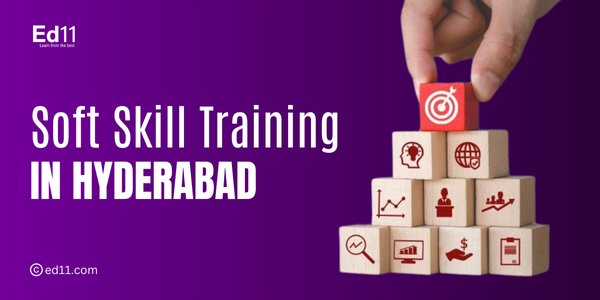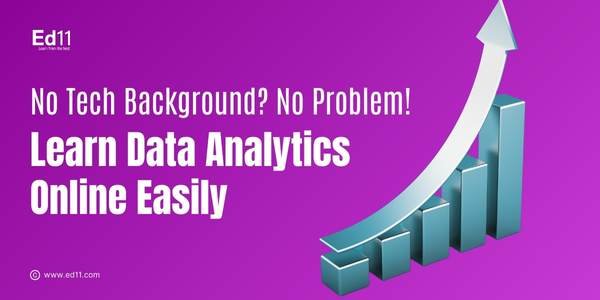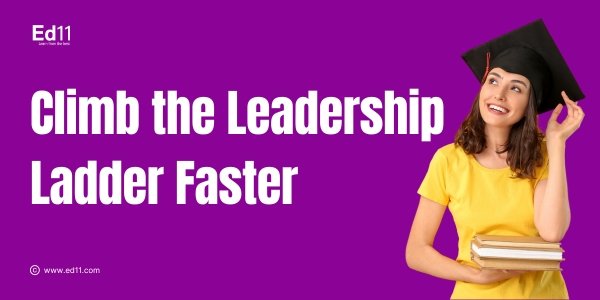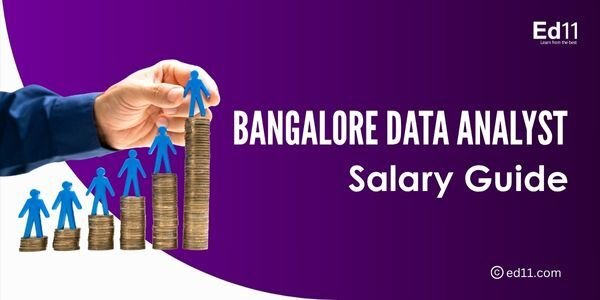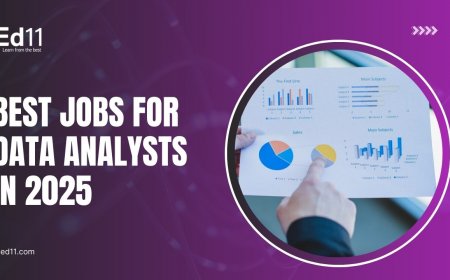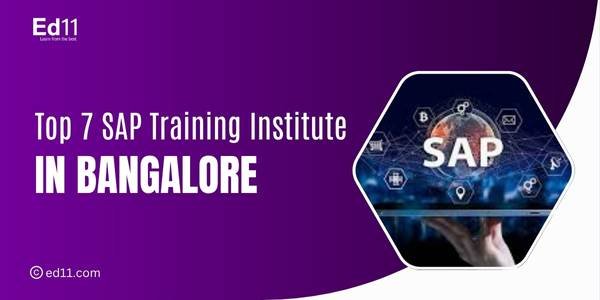Beginners Guide to Data Scientist Specializations
Discover the ultimate beginner's guide to data scientist specializations. Learn skills, tools, and career paths in data science. Start your journey today.
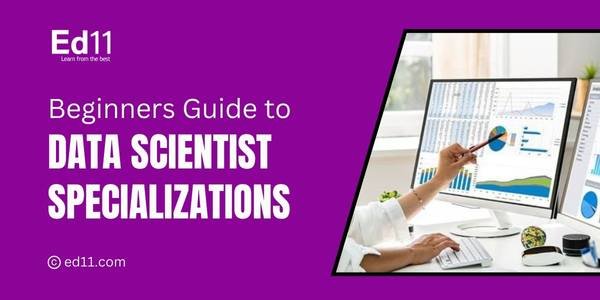
A beginner's guide to choosing the right data scientist specialization and growing your skills. As a Sr. Data Analyst, you already know the power of data. But what if you could take your skills further and dive into the world of Data Scientist Specializations? This guide is here to simplify the process and help you explore the different paths available in data science. Let’s walk through the basics and discover which data scientist specialization fits you best.
What Is a Data Scientist Specialization
Data science is a broad field that involves gathering, cleaning, analyzing, and modeling data to generate valuable insights. A data scientist specialization means focusing on a specific area within data science, such as machine learning, natural language processing, or big data analytics. Specializing allows you to deepen your expertise, stand out in your career, and work on complex, exciting projects that go beyond general data analysis.
Why Should a Sr. Data Analyst Specialize
As a Sr. Data Analyst, you already know how to interpret data and share insights effectively. By specializing in data science, you can boost your skills and explore new Career Opportunities for Data Science Analysts. This path helps you grow into advanced roles, work on exciting projects, and unlock more potential in the world of data.
-
Solve more complex problems.
-
Work with advanced technologies like AI and machine learning.
-
Unlock higher-paying roles and leadership opportunities.
-
Stay competitive in a fast-growing field.
Specializing helps you bridge the gap between analysis and predictive modeling, making you a more versatile and sought-after professional.
Top Data Scientist Specializations for Beginners
1. Machine Learning (ML)
Machine Learning is a way for computers to learn from data and improve without being directly programmed. It uses algorithms to find patterns, make predictions, or take actions based on the information given. For example, it helps recommend movies, recognize faces, or predict weather. ML is like teaching a computer to think and adapt on its own.
-
What it is: Creating algorithms that allow machines to learn and improve from data without being explicitly programmed.
-
Skills to learn: Python, TensorFlow, Scikit-learn, and advanced mathematics (linear algebra, calculus).
-
Why it’s great: ML is the backbone of AI, powering recommendation systems, self-driving cars, and more.
2. Big Data Analytics
Big Data Analytics is the process of examining large amounts of data to find patterns, trends, and useful information. It helps businesses make smarter decisions by understanding customer behavior, improving operations, and predicting future trends. Tools like Hadoop and Spark are used to handle and analyze massive datasets. It’s like digging through a big pile of information to uncover valuable insights.
-
What it is: Working with extremely large datasets that can’t be processed by traditional methods.
-
Skills to learn: Apache Hadoop, Spark, and cloud tools like AWS or Google Cloud.
-
Why it’s great: Big data analytics is essential for industries like finance, healthcare, and e-commerce.
3. Natural Language Processing (NLP)
Natural Language Processing (NLP) is a field of computer science that helps computers understand and work with human language, like speech or text. It’s used in things like chatbots, translation apps, and voice assistants (like Siri). NLP allows machines to analyze, understand, and respond to language in a way that feels natural to humans. It combines language, data, and machine learning to make communication easier.
-
What it is: Teaching computers to understand, interpret, and respond to human language.
-
Skills to learn: Python libraries like NLTK and spaCy, and working with unstructured text data.
-
Why it’s great: NLP powers chatbots, virtual assistants, and sentiment analysis tools.
4. Data Visualization and Storytelling
Data visualization is the art of turning data into charts, graphs, and images to make it easier to understand. Storytelling with data means using these visuals to explain ideas clearly and share insights. It helps people see patterns, trends, or problems in the data. Together, they make complex information simple and engaging for everyone.
-
What it is: Designing visuals that make complex data easy to understand and actionable.
-
Skills to learn: Tableau, Power BI, and libraries like Matplotlib or Seaborn.
-
Why it’s great: Visualization bridges the gap between technical teams and decision-makers.
5. Deep Learning
Deep Learning is a type of artificial intelligence that helps computers learn from data, just like humans do. It uses special computer programs called neural networks that mimic how the human brain works. These networks can recognize images, understand speech, and make predictions. Deep Learning is used in things like virtual assistants, self-driving cars, and translating languages. It’s a powerful way to teach computers to solve complex problems.
-
What it is: A subset of machine learning focused on neural networks with multiple layers.
-
Skills to learn: TensorFlow, Keras, and PyTorch.
-
Why it’s great: Deep learning is behind cutting-edge technologies like facial recognition and image generation.
6. Data Engineering
Data Engineering is about building systems to collect, store, and organize data for easy use. It involves creating pipelines to move data from different sources to databases or analysis tools. Data engineers work with big data technologies to ensure data is accurate, accessible, and ready for analysis. They play a key role in making sure data is usable for decision-making and insights. Think of them as architects who design the foundation for data projects.
-
What it is: Building pipelines to collect, process, and store data for analysis.
-
Skills to learn: SQL, Python, and tools like Apache Kafka or Snowflake.
-
Why it’s great: Data engineers ensure data is accessible, clean, and ready for analysis.
7. Business Analytics
Business Analytics is about using data to make smart business decisions. It involves analyzing past and current data to understand trends, solve problems, and plan for the future. Tools like statistics, data visualization, and predictive models are used to find insights. It's like helping businesses grow by understanding what the data is saying.
-
What it is: Using data science techniques to solve business problems and improve processes.
-
Skills to learn: Excel, SQL, and statistical analysis.
-
Why it’s great: This specialization focuses on ROI and actionable business insights.
Steps to Choose the Right Data Scientist Specialization
-
Reflect on your interests: What excites you most working with text, visuals, or numbers? Do you enjoy solving puzzles or telling stories?
-
Assess your skills: Start with a data scientist specialization that aligns with your current strengths. For example, if you’re great at SQL and data pipelines, consider data engineering.
-
Research industry demand: Look at job postings in your industry to see which skills and specializations are in high demand.
-
Start small: Pick one specialization, complete a few beginner projects, and decide if you enjoy it before diving deeper.
How to Transition from Sr. Data Analyst to Data Scientist
If you’re already a Sr. Data Analyst, you have a strong foundation to build on. Here’s a roadmap to get started
Upskill in Technical Areas
-
Learn programming languages like Python or R.
-
Practice working with tools like Jupyter Notebooks and version control systems like Git.
Take Online Courses
-
Platforms like Datamites and Skillogic offer beginner-friendly courses for every data scientist specialization.
Work on Projects
-
Apply your skills to real-world datasets.
-
Build a portfolio showcasing your specialization (e.g., machine learning models, visual dashboards).
Network with Experts
-
Join online communities like Kaggle, LinkedIn, or Reddit’s r/datascience.
-
Learn from professionals who are already in the specialization you’re exploring.
Apply for Roles Strategically
-
Look for roles that allow you to use both your existing skills and your newly acquired expertise.
-
Highlight your analytical background and passion for your chosen data scientist specialization.
Tools and Technologies for Data Scientist Specializations
-
Programming: Programming is the process of giving instructions to a computer to perform tasks. These instructions are written using coding languages like Python, Java, or C++. It helps create websites, apps, games, and software. Programmers solve problems and build tools to make life easier. It's like teaching a computer how to do specific jobs step by step
-
Data Visualization: Data visualization is the process of turning numbers and information into pictures, like charts or graphs, that are easy to understand. It helps people quickly see patterns, trends, or insights in data. Tools like bar graphs, pie charts, and line graphs make complex information simple and clear. It’s like telling a story with pictures instead of words.
-
Machine Learning: Machine Learning is a way for computers to learn from data and improve over time without being directly programmed. It helps machines recognize patterns, make decisions, and even predict outcomes. For example, it powers things like recommendation systems, voice assistants, and self-driving cars. It’s like teaching a computer to think and learn on its own.
-
Big Data: Big Data refers to extremely large amounts of information that are too complex for traditional tools to handle. It includes data from sources like social media, websites, apps, and sensors. Big Data helps businesses analyze trends, make better decisions, and predict future outcomes. Tools like Hadoop and Spark are used to process and manage it. In simple terms, it's all about managing and understanding massive piles of data.
-
NLP: NLP (Natural Language Processing) is a part of computer science that helps machines understand and work with human language, like speech or text. It’s used in things like chatbots, language translation, and voice assistants. NLP teaches computers to understand meaning, tone, and context in our words. It makes technology smarter in communicating with people.
FAQs
-
Do I need a degree to specialize in data science?
No! Many data scientists are self-taught or have transitioned from related fields like analytics. -
How long does it take to learn a specialization?
It depends on your focus and the complexity of the specialization, but 6-12 months of consistent effort is a good benchmark. -
Can I specialize in more than one area?
Absolutely! Many professionals start with one data scientist specialization and branch out as they gain experience.
Specializing in data science might feel challenging at first, but as a Sr. Data Analyst, you already have a solid foundation to build on. With a Data Scientist Specialization, you can enhance your skills in areas like machine learning, data visualization, and advanced analytics. Start by choosing a specialization that matches your interests, such as artificial intelligence, natural language processing, or big data analytics. By learning new tools like Python, R, and SQL and working on real-world projects, you’ll gain hands-on experience to tackle complex data problems. A Data Scientist Specialization also opens doors to exciting career opportunities, allowing you to work in industries like healthcare, finance, or tech. With dedication and focus, you’ll unlock your potential, stand out in the competitive job market, and take your career to the next level in the dynamic field of data science.





